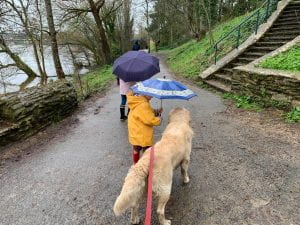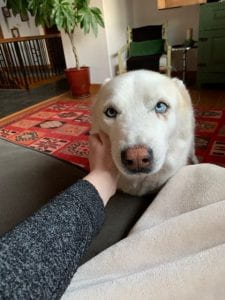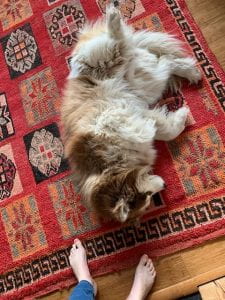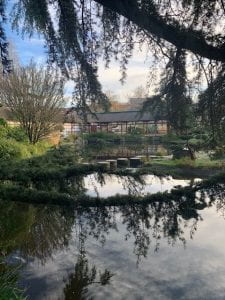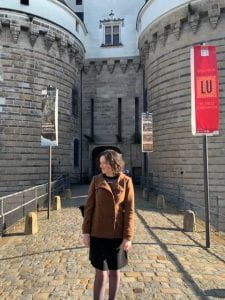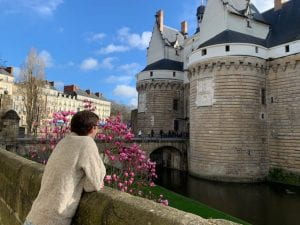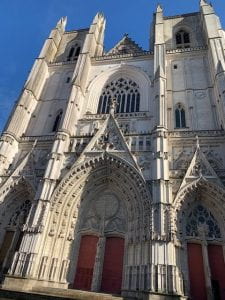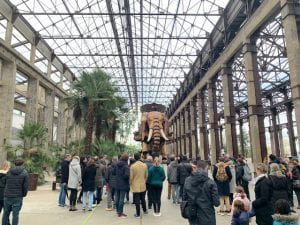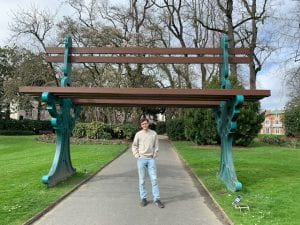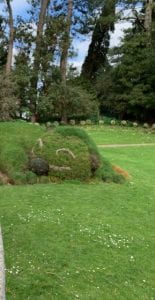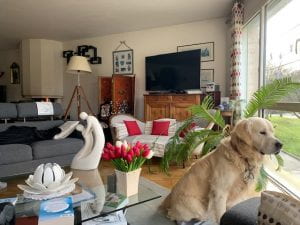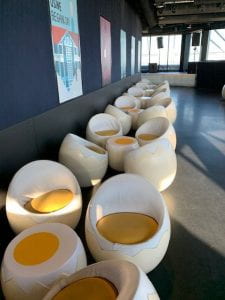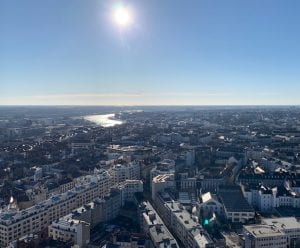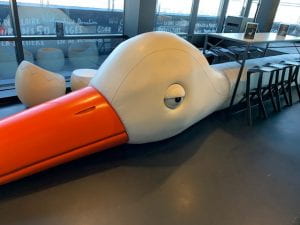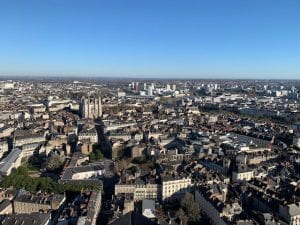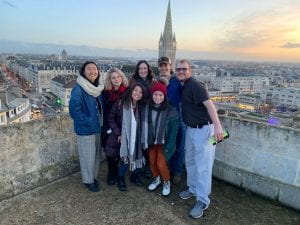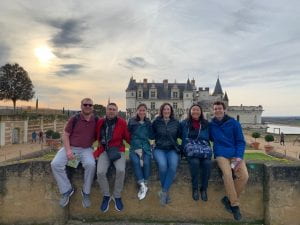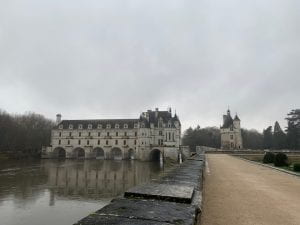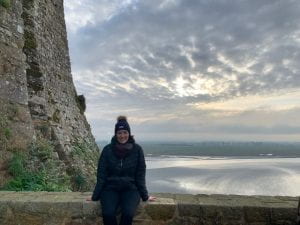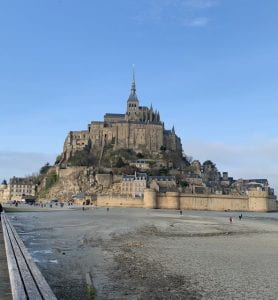Being home now, it is of course wonderful to spend time with my parents and sister. But when I reflect on my time in Nantes, I’m finding that my host family is one of the things I’m missing the most. IES Nantes is a full immersion program, meaning that everything is “En francais, s’il vous plait!” Classes, outings, events, any time spent in the IES building itself, and of course, time with the host family. Going into the semester, it was one of the things I was most nervous about. I felt like my language abilities were not strong enough to get thrown into the deep end like this, and I was worried communication with the real life “Nantais” would be full of forgotten words and extravagant gesturing to get my point across.
On arrival, after crazy days of barely caught flights and lost luggage, I was in an even worse mental state. My host parents were late picking me up from the IES center, I hadn’t been able to eat all day, and I was completely jet lagged. Not the best circumstance to try to make a good first impression. But I was wonderfully surprised at the compassion, understanding, and kindness of my host parents. I lived with a retired couple and their dog who had started taking American students back when their youngest daughter still lived at home. They spoke slowly for me, always checking in if I understood the more obscure subjects, and were generally supportive and complementary about my language skills. My confidence shot up in the first week, and from what I heard from my new friends there, everyone was having a similar experience. We were all more capable than we thought when it came to managing a foreign language, and when we weren’t the host families were always very understanding. My host parents didn’t really speak any English, but they kept an English-French dictionary near the table so we could bridge the gap when needed.
In terms of daily life with the host families, we settled into a routine fairly quickly. As determined by the program, we were provided with breakfast every day and dinners five nights a week. My host parents also invited me to several lunches when I was around on the weekends. My host mom was an amazing chef, both of traditional French foods (galette: see savory crepe with egg, ham and cheese) and other cuisines (she made a delicious curry and fried rice). Dinners were much later there than I was used to back home, generally in between 8 and 9 pm. They also had more courses than I was used to; the first couple weeks I would stuff myself on soup and salad and then she’d bring out a giant quiche and then some bread and cheese and then offer desert…it took some practice to not overeat. This meant that meals were a little longer and had lots of time for conversation. Of course, this varied from host family to host family, as my friends who lived with small children had a less leisurely experience.
I also got a chance to live with some French kiddos for a bit…their grandchildren stayed with us for a couple weeks right near the end of my time there. Understanding French spoken by a rambling six-year-old is definitely a whole different ballpark. In general though, I found their energy a fun addition to the house, and a great way to improve my language skills. If you get a chance, I recommend talking to kids in whatever language you’re learning. At the end of this post, check out the adorable picture of the six-year-old trying to share his umbrella with Mowgli when we went for a walk in the rain.
I think really what I want to get across with this post is don’t worry about the host families. Almost all of them have years of experience with hosting IES students and we’re in high demand (every semester there’s many more families wanting students than there are students). They are patient and understanding with the language, and if something isn’t working, IES is very available to help with uncomfortable situations and even with changing families. I’ve found myself missing them a lot in the past few weeks, and I look forward to a connection with them that will hopefully include me going back for a visit at some point in the coming years.
